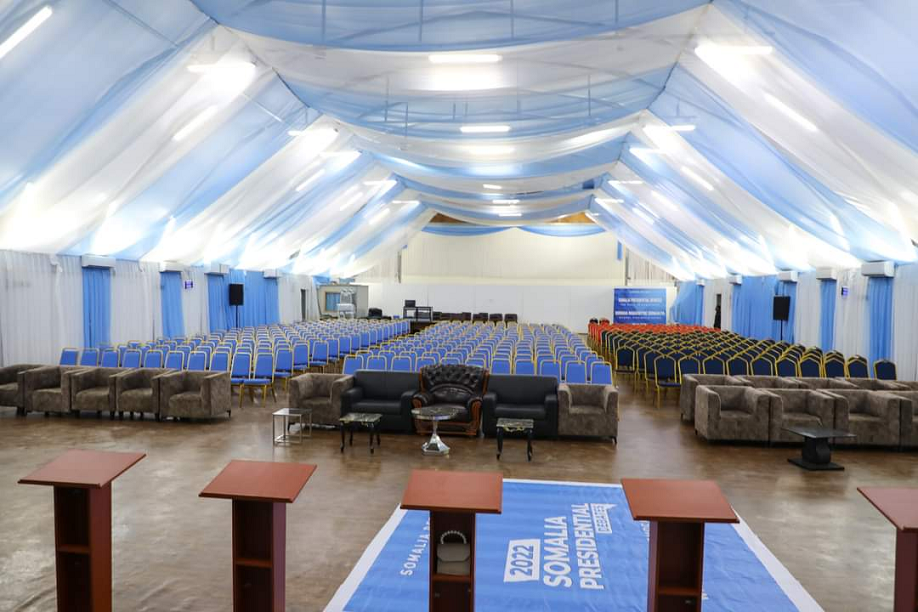
There is one day left until the May 15 presidential election and anxiety is mounting with uncertainty over who will be Somalia’s next president.
The indirect election, which has dragged on for a year and a half, has created unease throughout the country, especially since the people have no control over the process.
A dozen politicians, mainly the five regional state leaders and the prime minister, had the exclusive power to select who will seat at the 11th parliament, in clear violation of the rules stipulated in the September 17 agreement.
The Somali public witnessed a sham election that bordered on the ridiculous. There were however many first, mostly bad precedents, in these elections.
It took almost 8 months to painfully select 54 senators and 275 MPs who, fortunately for the first time, elected a woman, Sadia Samatar, as vice-president of the Lower House.
Also, a record number of 39 presidential candidates registered paying the required $40, 000 registration fees. Among these candidates, a woman, former foreign minister Fowsiya Yusuf, from the Somaliland region, is vying to be Somalia’s first female president.


Obstacles, such as high registration fees and the requirement of twenty lawmakers’ endorsement, imposed by Parliament to limit the number of candidates unfortunately did not have the desired effect.
These hurdles only prevented serious candidates with a strong program but with no backup from interest groups or foreign countries like Kenya, the United Arab Emirates and Djibouti.
On May 9th, former foreign minister Mohamed Abdirizak withdrew from the race lacking integrity.
In a speech posted on his campaign website, he lamented that “accepting campaign funds that go against the long-term interest of the Somali people would betray all that I hold dear…”
Tomorrow, May 15, the 11th parliament’s 329 members, including members unlawfully selected in a Kenyan army base in Elqalow, will cast vote to choose Somalia’s 10th president.
This event is causing great distress among Somalis inside and outside the country as they see foreign hands, unrestricted foreign money and corrupt politicians are about to shape their future.
The election venue in the highly militarized Halane compound in Mogadishu will be guarded by African troops operating under ATMIS while Somali police will be stationed outside.
In addition, millions of dollars are said to have changed hands to buy MPs’ voting intentions in recent days. Most of the money comes from Abu Dhabi and passes through Dahabshil Bank, a bank accused of having links with Al-Shabab.
For many well-known politicians who have lived on this dirty money for some time, it would be hard to resist the huge amount of money being handed out to lawmakers.
The people is counting on a dwindling number of lawmakers with integrity to make the right choice for the good of the nation. In fact, Somalis from all walks of life, on the streets and on social media, are voluntarily campaigning for Mohamed Abdullahi Farmajo.
Indeed, the incumbent president is admired for his uncompromising stance on unsolicited foreign interference and rampant corruption that has drained public funds. He is also lauded for the genuine patriotism he has shown so far.
Compared to former Somali leaders who are now candidates, Farmajo is the only candidate with an intact legacy of strengthening security, skillfully managing public finances and respecting public property.
Somalis also believe Farmajo’s victory is a step forward for Somalia’s sovereignty. The country is currently grappling with the Western nations’ shenanigans using the stringent UN Charter’s Chapter 7 and invasive sanctions to keep Somalia under permanent international scrutiny.
All the more, the last two years, delays in election were caused by parties, local and foreign, trying to prevent a scenario where Farmajo would be reelected.
Somali public believe Parliament should vindicate Farmajo for his ordeal of the last few months under foreign pressure and a corrupt prime minister used as a proxy by overwhelmingly voting for his re-election.
